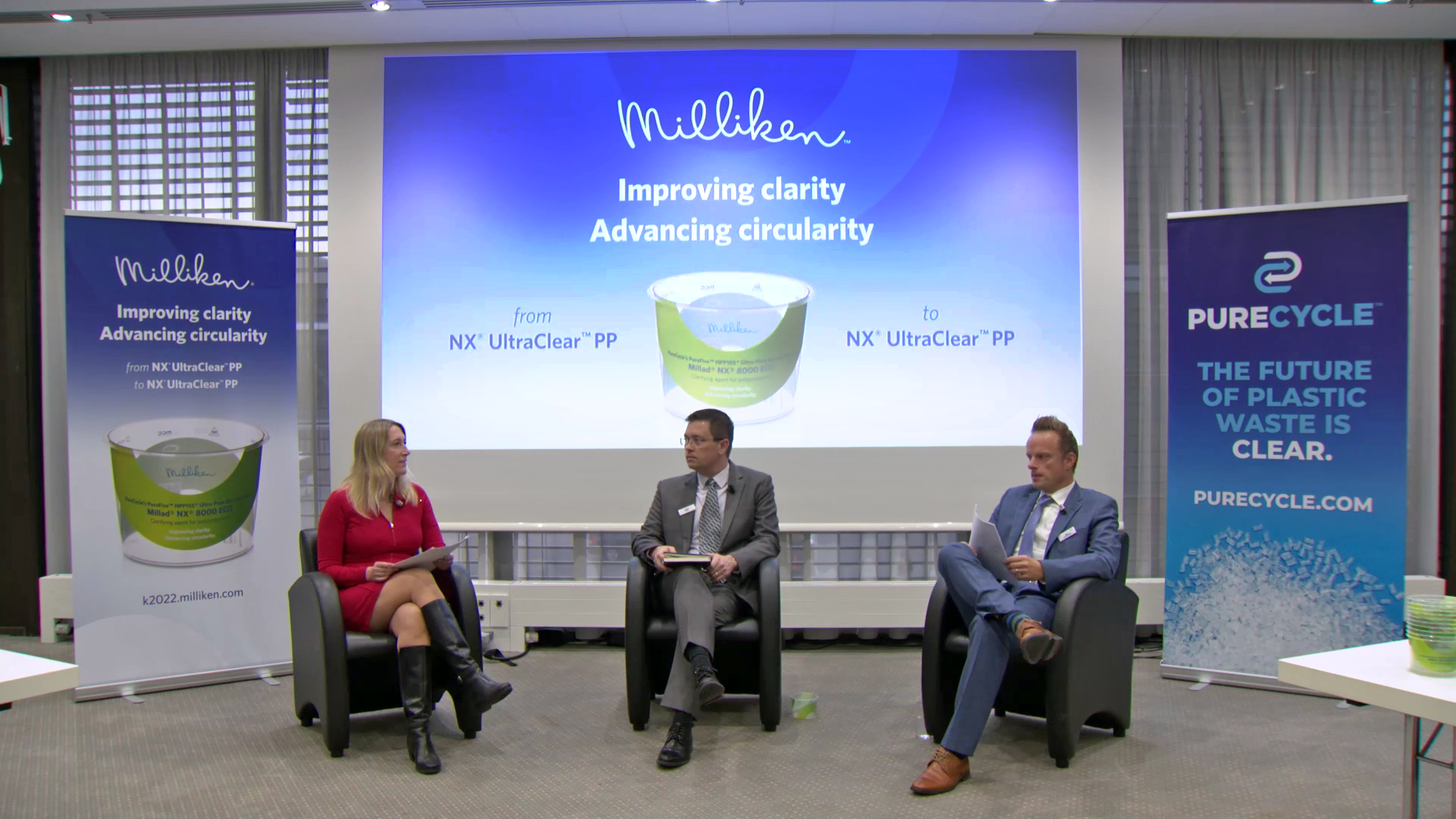On Oct. 21, Orlando-based recycling technology company and ISRI member PureCycle Technologies Inc. and Spartanburg, S.C.-based industrial manufacturer Milliken & Co. announced the creation of the first fully sustainable concentrate for polypropylene (PP). The announcement was made during the K 2022 plastics and rubber trade show in Düsseldorf, Germany.
PP is widely used in food containers, toys, automotive parts, building and construction, and agriculture, but the material can be challenging to recycle. When the rigid plastic gets processed the final material is opaque and dark in color.
PureCycle uses a technology developed and licensed by Procter & Gamble that removes contaminants, colors, and odors from PP during the recycling process, transforming the material into ultra-pure recycled (UPR) resin that can be a renewable, sustainable source of material for manufacturing.
 The new masterbatch product line, created with a blend of PureCycle’s ultra-pure recycled PP and Milliken’s proprietary additives, allows recycled products to be built without fossil-based carrier resins. This will allow recycled products to be built with masterbatch and still be fully renewable.
The new masterbatch product line, created with a blend of PureCycle’s ultra-pure recycled PP and Milliken’s proprietary additives, allows recycled products to be built without fossil-based carrier resins. This will allow recycled products to be built with masterbatch and still be fully renewable.
“Specific additives enable plastics to meet unique customer property requirements,” explains Dustin Olson, PureCycle CEO. “For example, antioxidant additives reduce yellowing in old plastics and anti-fog additives keep ski goggles clear when you’re on the slopes. These additives make up a very small percentage of the plastic and require a high-quality PP. But that’s where PureCycle’s PP comes in to provide a source of renewable high-quality materials.”
PureCycle doesn’t fit neatly into mechanical or chemical recycling instead offering an advanced recycling process. “The simplest way to think about it is that we wash the molecule,” Olson says. “We take a molecule that has color, odor, rubber, or additive packages wrapped around it and we wash all of that away, leaving the original PP molecule intact. We don’t spend a lot of energy to make our products because we’re not breaking down the molecular chain.”
According to PureCycle, customers using the new product should not need to adjust their operations to accommodate it. In other words, customers will not need to make color or formulation adjustments to get an acceptable result. As a color- and odor-free, high-quality material, the concentrate could prove to be an attractive option because it can be used for a variety of purposes.
 “It can be used for almost every plastic,” Olson says. “This isn’t a product that’s limited to the food and beverage industry, or the automotive industry, or the agriculture industry. It can be used in almost every PP application out there.”
“It can be used for almost every plastic,” Olson says. “This isn’t a product that’s limited to the food and beverage industry, or the automotive industry, or the agriculture industry. It can be used in almost every PP application out there.”
PureCycle is currently working to recycle more of the material more efficiently by scaling its production capabilities. In addition to completing its first plant in Ironton, Ohio, the company plans to install two lines at a new plant it is building in Augusta, Ga.
PureCycle has also established a partnership in South Korea, with plans for another partnership in Japan. “We’re growing globally and building more plants,” Olson says. “Our global growth is good for the planet and good for consumers. We have a special product that can change the world of recycling, and we are executing on our strategic plan to deliver this product to the world, because the world needs it.”
Photos Courtesy of PureCycle.










